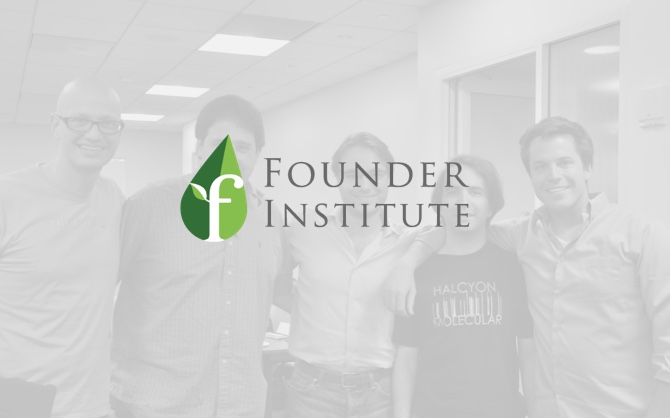
Startup ecosystems can be fragmented, competitive, and hidden to newcomers, which is detrimental for local startups and community growth. The Startup Ecosystem Canvas seeks to provide local entrepreneurs with a clear list of resources for every stage of their startup journey, and outline a basic framework for communities to map their ecosystem.
With applications for the Campinas Founder Institute coming to a close, we are excited to release the Campinas Startup Ecosystem Canvas, which is currently in Draft v1 below! It was developed by the Campinas Founder Institute and local leaders Érico Pastana and Pedro Sousa, together with the Campinas Startups Association (ACS), the local Chapter of the Global Entrepreneurship Network (RGE Campinas) and other local ecosystem collaborators.
More input is needed, so please leave your comments on this collaborative Google document, and it will be considered for the next update.
You can also learn more about the Startup Ecosystem Canvas project https://FI.co/canvas.
Startup Stages
There is no one right way to build a technology company, but for the sake of simplicity we have outlined a basic, common, sequential framework.
1. Idea Stage
This is where new entrepreneurs get inspired, learn best practices, develop skills, validate ideas, and begin to build their team and product.
-
Inspire
- Startup Media: Centralized local information, listings, and news. (i.e. startup blogs/ publications/ lists/ FB groups/ newsletters)
- Inspirational Events: Open, inclusive, beginner startup events (i.e. Startup Weekend, idea fairs, and inspirational meetups)
- Educate
- Best Practices: Beginner knowledge-sharing events. (i.e. beginner events that serve to educate more than inspirate, like Startup Grind, Startup Founder 101, etc).
- Training & Feedback: Skill & Idea development. (Ex. bootcamps and comprehensive training programs, like Founder Institute, code camps, etc)
- Build First Product: Hackathons & resources to build. (i.e. hackathons and other builder-focused events and resources)
2. Launch Stage
In this stage, entrepreneurs establish and formalize the company, develop the product, get feedback from customers, and prepare for the next step.
- Start
- Establish: Law firms & banks that specialize in helping startups
- Workspace: Co-working and flexible workspaces (note: “official” office space goes in 3.1.a. Infrastructure)
- Develop
- Formalize: Accounting, development and HR for early-stage startups.
- Prepare for Seed: Incubators and advanced mentorship. (i.e. advanced knowledge sharing, later stage events and resources for startup TEAMS)
- Launch
- Seed Accelerators: Seed funding mentor programs (Techstars-style programs that provide funding)
- Pitch & Demo: Show local startups for investment (i.e. demo days for companies seeking seed investment)
-
100 Open Startups Demoday
-
Baita Demoday
-
Desafio Unicamp Demoday
-
Founder Institute Graduation
-
Startups-SP Sebrae Demoday
-
Weme Demoday
-
Conferência Campinas Startups
3. Growth Stage
Here, a startup proves their utility, receives recognition, and scales up. This usually requires funding, angels, VCs, and ways to connect them to startups.
- Recognition
- Investor Networking: Connect professional investors with founders. (i.e. events or groups that facilitate connections with professional investors vs. angels)
-
Corporate Garage
- Funding
- Angels / Micro-VCs: Seed-stage investors
- Growth
- Infrastructure: Office space, HR, local business insurance. (i.e. office space/ HR/ insurance providers for capital-rich companies to grow and scale)
4. Success Stories
Successful homegrown companies that have raised significant institutional funding, employ a large workforce, or have achieved liquidity.
Supporters
To facilitate the steps, every ecosystem needs strong supporters.
1. Evangelists
Successful local founders who lead the ecosystem & frequently mentor newbies. (i.e. Local leaders who have taken a leadership position, speak at a lot of startup events, mentor all the programs, etc.)
2. Government
Public organizations that facilitate local economic development
3. Talent
Major local business or tech universities and employers that attract and retain local talent.
- Local Universities (universities with prominent technical or business programs)
- Local Employers (Major technical employers with large local offices)
-
3M
-
Ambev
-
Bosch
-
Ci&T
-
CPFL
-
Eaton
-
Elektro
-
Honda
-
IBM
-
Motorola
-
Movile
-
Samsung
-
Tetrapak
Learn more about the Startup Ecosystem Canvas here, and leave us your thoughts on the Campinas Canvas on this collaborative Google document, or on Twitter using the hashtag #ecosystemcanvas. This is a perpetual work in progress, and it will be updated frequently, so we want your feedback!
Are you looking to build a startup in Campinas? Then apply to the Campinas Founder Institute today



